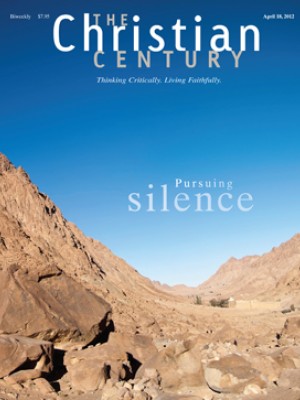As Rowan Williams retires, guesses on successor rise
When Archbishop of Canterbury Rowan Williams announced suddenly in
mid-March that he will step down at the end of 2012, a short list of
prospective successors swiftly began to circulate.
Williams, 61,
has led the Church of England and the world's 77 million Anglicans since
2002. In January, Williams will serve as master of Magdalene College in
Cambridge, returning him to the academic life that defined his early
years and where he seems most comfortable.
Williams is giving up a
tenure that has been plagued and occasionally scarred by hot-button
issues such as same-sex unions and the threatened breakup of the English
and global church over female and homosexual bishops.
Yet even as
members of his global flock refused to follow his lead, Williams was
widely respected as a calm and gentle leader and academic who perhaps
never had the stomach for the bare-knuckled fights in the church.
The
odds-on favorite, according to numerous observers, appeared to be
Uganda-born John Sentamu, the current archbishop of York and the no. 2
official in the Church of England. Sentamu, the sixth of 13 children,
fled his homeland and its dictator, Idi Amin, in 1974.
Read our latest issue or browse back issues.
Sentamu has
gained a reputation in some circles as a "cleric of the people" for his
actions, including cutting up his clerical collar on live television in
2007 to protest the rule of Zimbabwe strongman Robert Mugabe.
Another
prospective candidate is Bishop of London Richard Chartres, who gave
the address at the marriage of Prince William and Kate Middleton last
year and has a record as a strong campaigner on environmental issues.
Other
prospects include Bishop of Bradford Nick Baines, who has gained a
reputation as a "blogging" bishop for his use of modern technology, and
Bishop of Leicester Tim Stevens, leader of the Anglican bishops who sit
in the House of Lords.
Williams told reporters that his successor
will need "the constitution of an ox and the skin of a rhinoceros." The
cascading series of crises at home and abroad made Williams's job—and
his life—a seemingly endless headache marked by embarrassments and
disappointments ever since his appointment by former Prime Minister Tony
Blair.
Williams worked desperately to prevent a global schism as
the Episcopal Church in the U.S. ordained two openly gay bishops and
allowed same-sex unions. Such steps, he warned, tear at the "bonds of
affection" that keep the worldwide communion as one.
"We can all
give thanks for his erudition and persistence in seeking reconciliation
across a rapidly changing Anglican Communion," the Episcopal Church's
presiding bishop, Katharine Jefferts Schori, said in a statement.
Because
the archbishop of Canterbury does not have the power of a pope to
sanction dissident followers, Williams turned to the power of persuasion
and symbolism.
When he issued invitations to the 2008 Lambeth
Conference of Anglican bishops from around the world, he refused to
extend one to openly gay Bishop V. Gene Robinson of New Hampshire. At
the same time, Williams faced an insurrection on his right flank as
influential Anglican bishops in the Third World dismissed him as
irrelevant for not taking a harder line on Western liberals.
His
attempt at compromise—an "Anglican Covenant" that would bind member
churches that agree to its traditional tenets—has so far been met with
tepid enthusiasm by both conservatives who don't think it will work and
liberals who say they will not be bound by outside interference.
A
majority of dioceses in the Church of England have voted down the
covenant. Six diocesan synods voting on March 24 and 25 brought the
current figures to 23 against and 15 in favor out of a total of 44
dioceses, according to the Episcopal News Service.
Williams has
warned that the Anglican Communion risks "piece-by-piece dissolution" if
its 40 member churches can't agree on a common set of rules and
beliefs.
And in a Catholic-Anglican turf battle 400 years in the
making, Pope Benedict XVI created a special structure for disaffected
Anglicans in Britain and the U.S. to join the Catholic Church while
still maintaining elements of Anglican liturgy.
Though Williams
and Benedict have a close personal friendship, the pope's move made
Williams appear powerless, and there was little he could do to stop the
Vatican's overtures to conservatives.
Traditionally, the new
Anglican leader is chosen by a church committee of clergy and laity, who
then draft a short list of candidates to submit to the prime minister—a
process recently dogged by controversy. While Queen Elizabeth II is the
supreme governor of the Church of England and formally appoints the
archbishop of Canterbury, the decision is based on the final
determination of the prime minister, now David Cameron. —RNS



